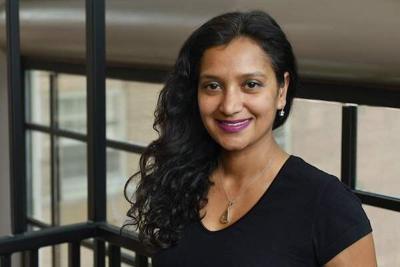After 9/11, Muslims and Arabs, and those who looked as if they might be Muslim or Arab, were subjected to the cutting hate of Islamophobia in the Western world. I know this because my younger brother, more than I, encountered that bigotry in New York City. So I am aware of the injustice of bias, and therefore I have been all the more outspoken against antisemitism.
I’ve also been long aware of the dehumanization to which Palestinians have been subjected for decades in the Gaza Strip.
And I was horrified by the attack on Israel on Oct. 7, when Hamas killed approximately 1,200 Israelis and took 253 others hostage. I grieve with my Jewish brothers and sisters, even as I have grown increasingly distressed by the scale of Israel’s retaliation.
In recent months, I have felt quite alone in my immediate environment, as I have voiced horror against the indiscriminate killing of Palestinians by the Israeli military — more than 34,000 people, including 13,000 children, according to the Gaza Health Ministry.
My voice felt empty, lost in some bottomless abyss of indifference. I knew the danger of speaking out against the ongoing slaughter of the Palestinian people; of being accused of antisemitism; of being accused of sympathizing with the Hamas terrorists; of the potential negative impact on my hard-earned career. Recently, my brother wrote me a note saying that I might think no one was listening, but he was hearing me and he was proud of his big sister.
In addition to our illuminating experiences in New York City after 9/11, my brother and I grew up in Zimbabwe in southern Africa and we watched American students protesting the inhumane brutality of apartheid in South Africa. The solidarity from across the ocean reached our hearts, and we never forgot the power of those American students.
In late April, a Millersville University student asked if I would be available to support a rally for Palestinians at the Student Memorial Center on campus.
On my way there, I was walking with another student, who said to me, “even if I am the only person at that rally, I will stand there on my own because what is right is right. I am not afraid to stand up for what is right.” This 20-year-old student’s conviction and moral compass humbled me to tears.
Student leader Noé Oberholtzer Hess commenced the rally, undaunted and courageous. And as he spoke, I felt the force of solidarity of a million standing with us. I no longer felt alone, standing with these 50 or so students whose passion for humanity was courage enough for the world.
Over the course of the next hour, several students spoke out, eloquently and peacefully, against Israel’s relentless military attacks on Gaza over the last six months and the horrific toll those attacks have exacted on Palestinian women and children.
They also spoke out against antisemitism and recognized that May is Jewish American Heritage Month, and said that what’s been happening in Gaza does not reflect true Jewish values.
They spoke out against the funding of Israel’s military operations with billions of our taxpayer dollars.
They called for humanitarian aid to reach the starving population in Gaza, and for the liberation and freedom of the Palestinian people.
They asserted that what’s happening is genocide, though the International Court of Justice has not confirmed that allegation.
And they called for an immediate cease-fire, because the killing of Palestinians and the razing of universities and other infrastructure in the Gaza Strip have not saved a single Israeli hostage.
In talking to me, some of the student rally organizers spoke of the need to shed their fear and confront injustice; of their dissatisfaction with how quiet the campus was before their rally and how they felt it was their “moral responsibility” to speak out; and of their determination to pressure university officials to use their voice and influence on behalf of the Palestinians in Gaza, just as they did for Ukrainians attacked by Russia.
American students are protesting loudly now because for the past nearly seven months, politicians and other decision-makers have not listened to their voices. Politicians seek to vilify American college students who are holding our government accountable for spending our taxpayer dollars to fund the indiscriminate bombing of children and families, universities and hospitals. But these politicians are up against an indomitable force of young people, whose principles are governed by the courage of conscience. These are the same students who will be voting in elections and using their social media platforms to amplify their fearless humanitarianism.
American students are not looking for validation or approval. They are not manipulated by the fear of being disingenuously branded as antisemitic for protesting the indiscriminate and U.S.-funded slaughter of Palestinians. American students are not afraid of losing job opportunities at companies that will not hire students protesting for the liberation of Palestine, because they don’t want to work for companies that are sympathetic or complicit in the atrocities in Gaza. These students, some of whom are Jewish, see the slaughter of children and the starvation and displacement of a population for the horror that it is. And they refuse to remain silent.
American students are powered by the unwavering principles of freedom. Noé, the student leader, wrote to thank me for my support — “It means more than you know,” he wrote.
I thought that it is I who am thankful for the opportunity to stand with these students. Somewhere in the world there are children and families who hear the voices of these American students and they are feeling the life-giving force of hope for freedom of their own.
Nazli W. Hardy, MBA, Ph.D., is the founder of Woman Empowered! (NazliHardy.com). She is associate professor of computer science and chair of the Women in Science & Technology Conference at Millersville University.




